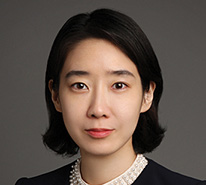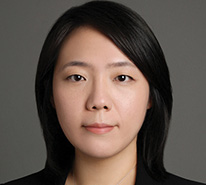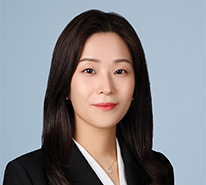Yulchon LLC’s insight on South Korea’s recent implementation efforts to further integrate international arbitration and mediation in its legal system
Following the emergence of arbitration as an alternative dispute resolution mechanism in consequence to the costly and time-consuming traditional method of litigation, it became more attractive and reliable, triggering the flourishment of the arbitral market in Asia. As more ongoing engagement in cross-border investments occurred in Asia, it led to the continuous growth and refinement of national arbitral rules and laws across many jurisdictions, resulting in the establishment of arbitral hubs and institutions. Among the arbitral institutions, the Hong Kong International Arbitration Centre (‘HKIAC’) and the Singapore International Arbitration Centre (‘SIAC’) grew exponentially in size, but also in popularity. Therefore, by successfully ranking globally and becoming the most preferred arbitral seats, it brought forth a substantial number of case filings.
On the other hand, as the ‘youngest’ and most recently established institution, the Korean Commercial Arbitration Board (‘KCAB’) is gradually progressing and steadily catching up with its neighbouring confreres. KCAB was established in 1966 with the main purpose of resolving disputes quickly and impartially through arbitration, mediation and conciliation. In South Korea, not only has the government and judiciary encouraged the use of arbitration to resolve disputes between domestic parties, but it has also amended and enacted the Korean Arbitration Act in 2016 by incorporating recent developments in international arbitration practice, in order to promote domestic and international arbitrations in South Korea. In particular, recent Korean court case precedents have demonstrated an ‘arbitration-friendly’ approach from the courts, which foster more organisations to consider South Korea as a potential arbitral seat, and to select KCAB as its arbitral institution of choice.
In 2017, the Arbitration Industry Promotion Act came into effect, providing for long-term planning and financial support by the Korean Government for the promotion of international arbitration in Korea. Article 3 of the Act, in particular, provides that the Minister of Justice shall establish and implement a master plan to promote the arbitration industry every five years. Accordingly, the Korean government has set up a plan for 2019-2023 to increase KCAB’s capabilities of handling international matters by providing a KRW2.4bn annual budget and to become the arbitration hub of Northeast Asia.
Moreover, in 2022, the South Korean Ministry of Justice collaborated with the Korean Council of International Arbitration (‘KOCIA’) by commissioning a research service report with the objective of revitalising Korea’s international arbitration industry to a global level through an overseas case study. The report was prepared by the research group, in which Ms Jeonghye Sophie Ahn, co-chair of the international dispute resolution team from Yulchon LLC participated together with other reputable and knowledgeable arbitration experts and practitioners in South Korea. The research group carefully examined overseas arbitral institutions, and in particular, it benchmarked SIAC while studying the background of Singapore and how it quickly became a world-class international arbitration hub.
With respect to the overall results of the report, the research group noted several key points. For one, while the Korean government made considerable and progressive efforts from a legislative standpoint, there were several unique features that KCAB can adapt by benchmarking Singapore’s international arbitration industry. In particular, there is the necessity in seamlessly involving the international arbitration community, such as lawyers and practitioners of various nationalities, and to get their input in order to continuously make changes to the existing system. But also, it is important to sufficiently promote Korea’s infrastructure and arbitration-friendly system by developing accessible resources in English, or to organise offline in-person events to actively publicise these resources. In contrast, some features were deemed solely unique to Singapore, making it more difficult to benchmark to the Korean system, such as the official language of the country and the different legal systems.
Therefore, it was suggested that by taking into consideration Korea’s language barrier issues and civil law characteristics, an independent international commercial court should be created, in which it would directly deal with arbitration-related cases while also recognising and enforcing any international arbitration awards seated in Seoul. At the same time, it was also proposed that KCAB establish a committee that can provide a choice to the parties of an arbitration to either resort to the courts or to proceed with the annulment of the arbitral award directly through the committee.
In conclusion, while some of Singapore’s features can be easily integrated into Korea’s international arbitration industry, others may need to be acclimatised and tailored uniquely to Korea. Nonetheless, based on the results of the report, it can be inferred that the Korean government is making great progress towards its objective in making Korea the next arbitral hub in Asia.
On another note, in 2019, Korea signed the UNCITRAL’s Convention on the Enforcement of Mediation Settlements (‘Singapore Convention’), and from 2021, it initiated a task force on domestic legislation, in order to implement the Singapore Convention. Moreover, in 2020, the Korea International Mediation Centre (‘KIMC’) was established, in which Mr Yun Jae Baek, co-chair of Yulchon LLC’s international dispute resolution team is actively participating as a mediator. Based on these recent developments, with Korea’s endeavours to concurrently promote international commercial mediation, it may ultimately strengthen KCAB’s capability to becoming the hub for international dispute resolution in Northeast Asia.
Yulchon LLC
Yulchon LLC is a full-service international law firm headquartered in Seoul, South Korea. It employs more than 600 professionals, including more than 60 licensed in jurisdictions outside of Korea, and has offices in Shanghai, Hanoi, Ho Chi Minh City, Moscow, Jakarta, and Yangon. An acknowledged market leader in the development and practice of law, it has been named as ‘the most innovative law firm in Korea’ by the Financial Times on three separate occasions. It is frequently retained to negotiate complex transactions, help draft new legislation and regulations, and represent clients in high-stakes adversarial proceedings. As one of Korea’s premier law firms, Yulchon maintains its high standards of excellence by valuing a culture of collaborative problem-solving.
Authors

Yun Jae BAEK
T: +82 2 528 5473
F: +82 2 528 5228
E: yjbaek@yulchon.com
Yun Jae Baek is a partner at Yulchon LLC and the co-chair of its international dispute resolution team. He received an LLB from Seoul National University and an LLM from Harvard Law School. Mr Baek has acquired unparalleled knowledge and experience for over three decades and is qualified to practice in both Korea and New York. He is considered one of Korea’s top lawyers in the areas of international arbitration, M&A, aviation, and general corporate practice. Currently, Mr Baek serves as arbitrator for many arbitral institutions including the KCAB, AIAC, and the ICC. His reputation has led to him being selected as a leading lawyer by renowned publications such as Chambers Global and Who’s Who Legal.

Jeonghye Sophie AHN
T: +82 2 528 5306
F: +82 2 528 5228
E: jhahn@yulchon.com
Jeonghye Sophie Ahn is a partner at Yulchon LLC and the co-chair of its international dispute resolution team. She received an LLB from Seoul National University and an LLM from Harvard Law School. Ms Ahn focuses on international disputes and has acted as counsel and arbitrator in international arbitrations administered under the SIAC, ICC, KCAB, and UNCITRAL Rules arising from a diverse range of commercial and corporate transactions including joint venture, intellectual property, media and telecommunication, and construction. She also specialises in arbitration-related proceedings in court and has represented both foreign and domestic corporations in seeking or resisting enforcement of awards, interim measures, and injunctions.

Hyunah PARK
T: +82 2 528 5747
F: +82 2 528 5228
E: hapark@yulchon.com
Hyunah Park is a partner in the international dispute resolution team at Yulchon LLC’s dispute resolution practice where her practice is mainly focused on domestic litigation as well as international arbitration and other types of international disputes. She also specialises in insurance law and has been dealing with many insurance-related cases, and regularly provides legal advice with regards to insurance disputes. Ms Park received an LLB from Korea University and an LLM from University College London. She is licensed to practice in Korea.

Seyoung CHOE
T: +82 2 528 5233
F: +82 2 528 5296
E: sychoe@yulchon.com
Seyoung Choe is a foreign attorney in the international dispute resolution team at Yulchon LL, licensed in Ontario, Canada. Her practice is mainly focused on international arbitration and cross-border litigation. Ms Choe received a JD from the University of Ottawa in 2016 and an LLB from the Université de Montréal in 2015.
Return to the Disputes Yearbook 2023 menu
Subscriber Access
You must be logged in to view full premium content.







